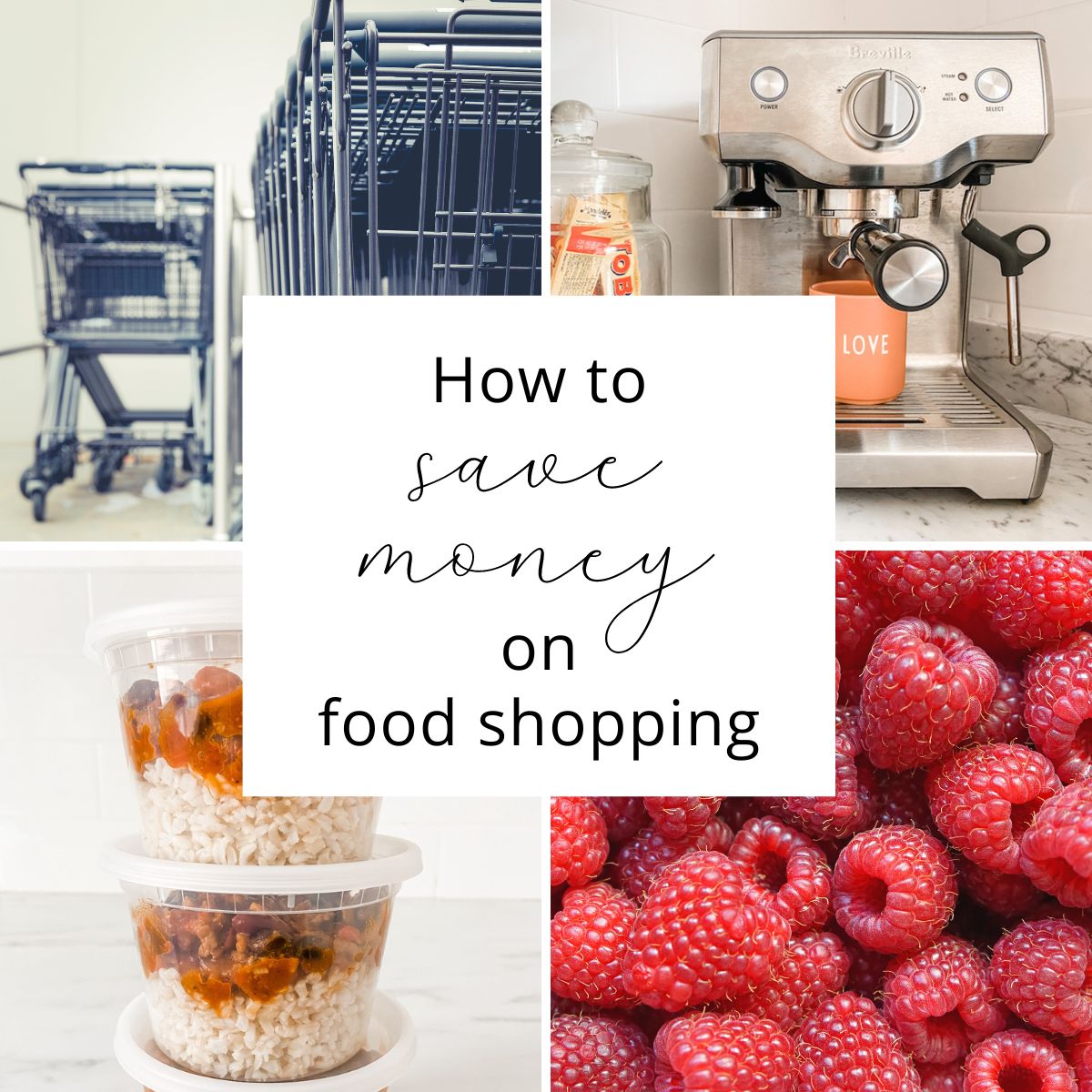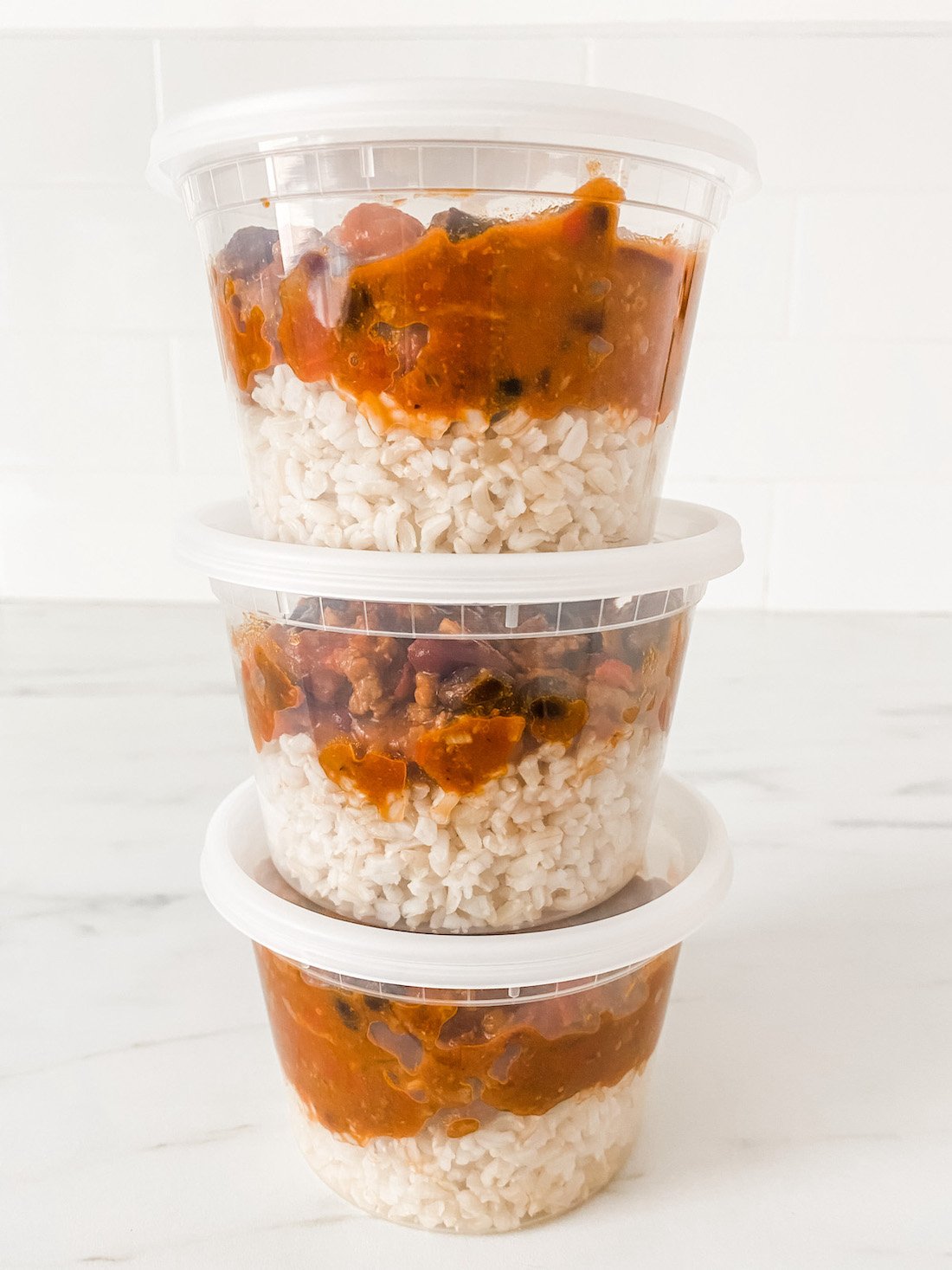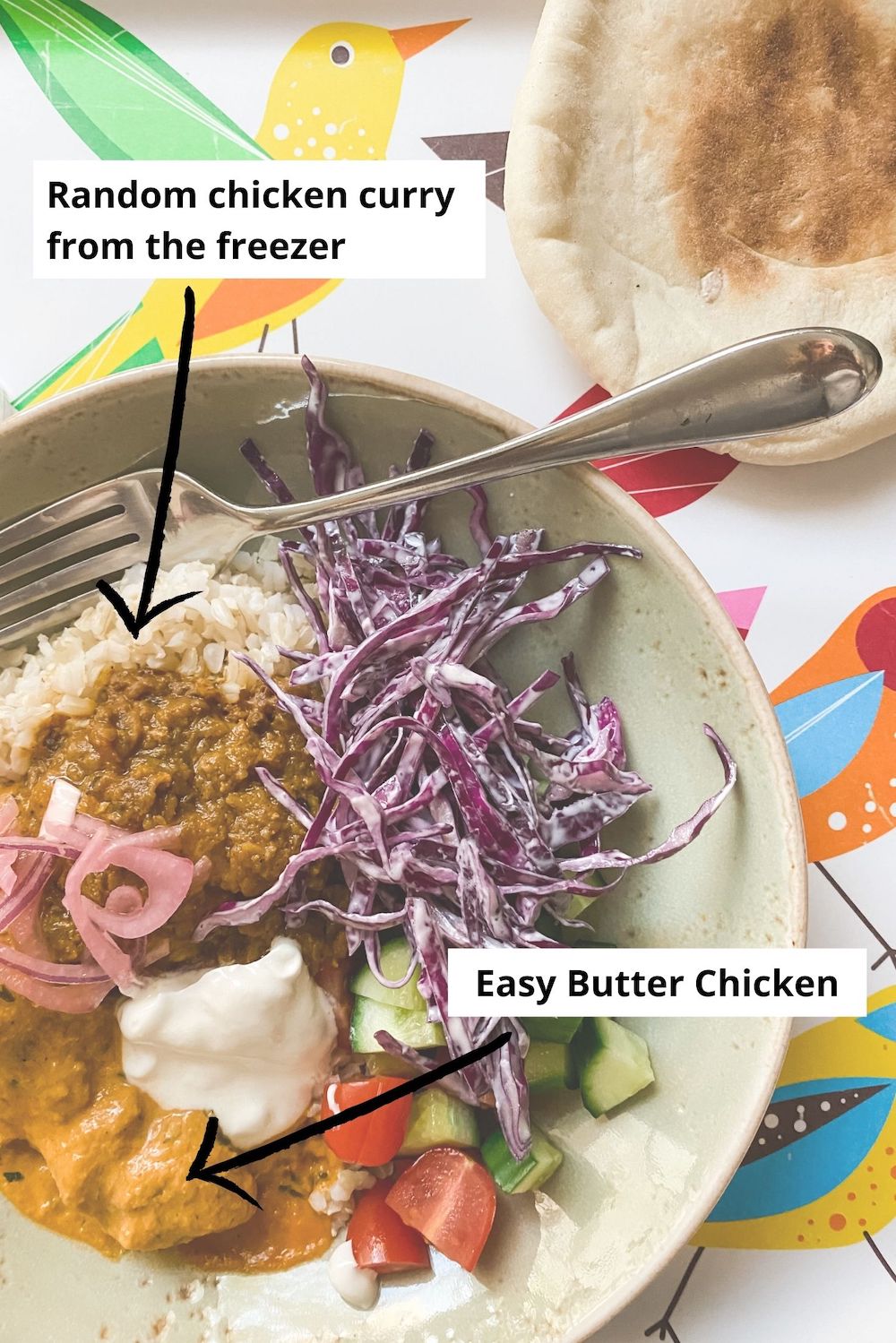We are all feeling the pinch. Everything is more expensive than it used to be and it doesn't feel as though the end is anywhere in sight. We are struggling with higher energy and petrol costs; possibly higher rent and mortgage payments and the airlines are most definitely trying to recover every one of our pennies that we didn't spend with them during the pandemic. Steeper food shopping bills are adding to the pressure on our finances and so I've been looking in earnest at how I might save money on food shopping while still keeping an eye on being nutritionally balanced and (hopefully) not being stripped of every ounce of culinary joy. To my mind there are three main principles which have the potential to make a difference to the bottom line; we can -
- Buy less
- Buy more cost-effectively
- Waste less
And here are some ideas that might be helpful - each of them drawing on one or more of these principles. As always, these are merely suggestions and I'm certainly not preaching, rather, just sharing what's working for me.
Make a plan
'Make a plan'; even the words may well bring on a sneaky yawn. It's not sexy, I know, but sensible sometimes wins the race. Having a plan for meals (even if it's only dinners) means that I spend less and waste less. I've written about it here and it's a philosophy that draws on most of the ideas below but it's probably at the core of saving money in the kitchen, so it deserves to be mentioned first. In summary, with a plan, you're more likely to use what you buy and what you already have in stock plus you are less likely to be prone to impulse purchases and takeaways. It doesn't need to be a fancy plan but even knowing what you will cook for 3 or 4 dinners in the week is incredibly positive. And there is the added bonus that you can do the thinking at a time of your choosing, not when it's the end of a long day and you have ravenous loved ones screaming for food …
Go back to the basics
Sometimes I need a reminder that the classic, simple dinners can be the most delicious AND the least expensive. See Exhibit A below. Plus, not every meal needs to be everyone's (or anyone's) favourite; good enough is good enough. I'll just leave that thought there for you.
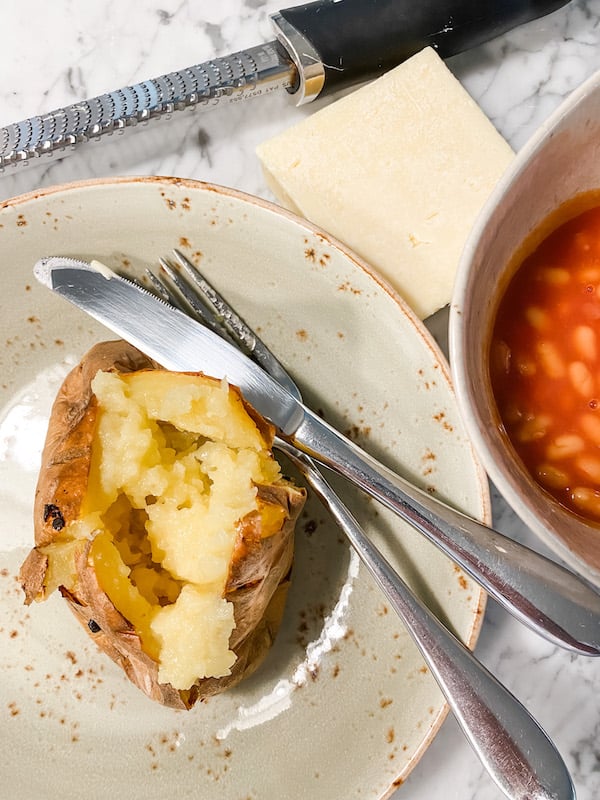
Try a meatless meal (or two)
I save so much money when I don't buy meat and fish plus I'm doing my bit for the environment. I'm also a fan of making the meat and fish that I do use, stretch further by supplementing with vegetables, beans and grains. I will admit that there are times when my 'chicken soup' contains so many vegetables and grains that if you blinked, you'd miss the chicken, but hey, we do what we need to do! You'll know what adaptations your family will tolerate but maybe start with one or two vegetarian dinners each week and see how it goes. Your purse will thank you.
Write a list and stick to it
Writing a list and sticking to it, is one of the easiest ways to keep your spending on track. But beware, the supermarket layout is designed so that you walk past every shelf and provides temptation at every turn so, once you are familiar with the store layout, try writing your list based on your in-store route. It makes shopping much quicker and also minimises browsing opportunities! And, most importantly, don't shop when you're hungry - it's so much harder to avoid those tasty impulse purchases with a rumbling stomach!
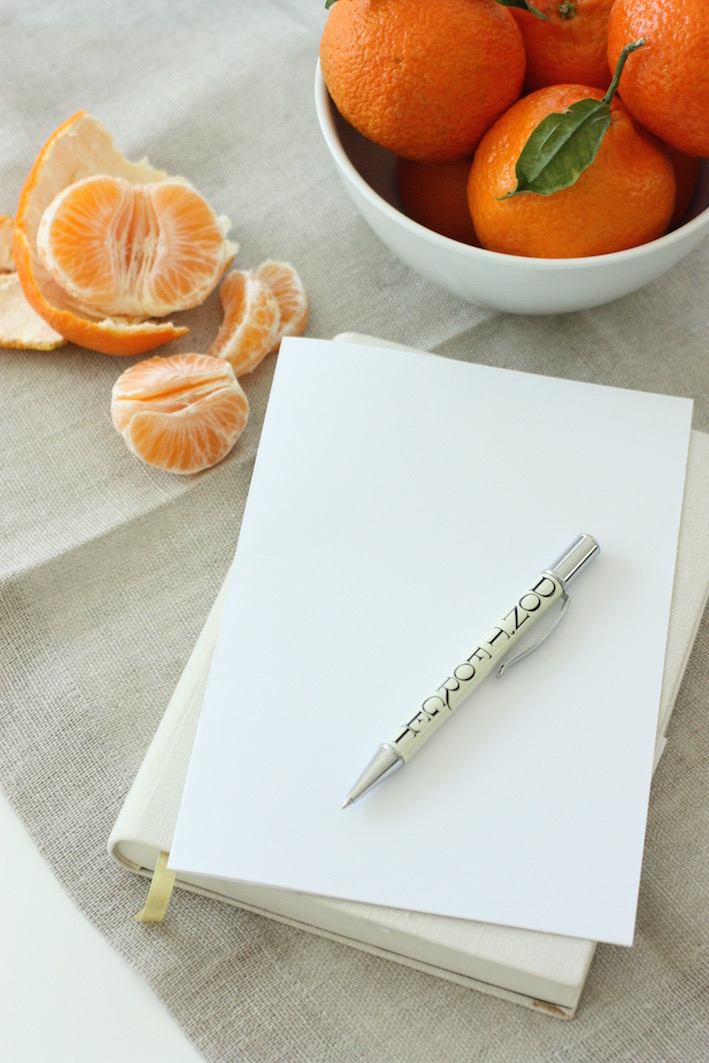
Shop online
If you struggling with the pull of browsing and the temptation of impulse purchases, perhaps online food shopping is better for you. It's probably the easiest way to set a budget and stick to it because you can literally see how much you are spending with every addition to the basket.
Keep track of what you already have
You can't use what you already have in your kitchen unless you KNOW what you have. For me, it's the freezer that becomes the 'black hole' so I slap a list of what's in there on the freezer door and cross it off when I've used it. There really is no point in buying a bag of frozen peas when there are already 3 in there!
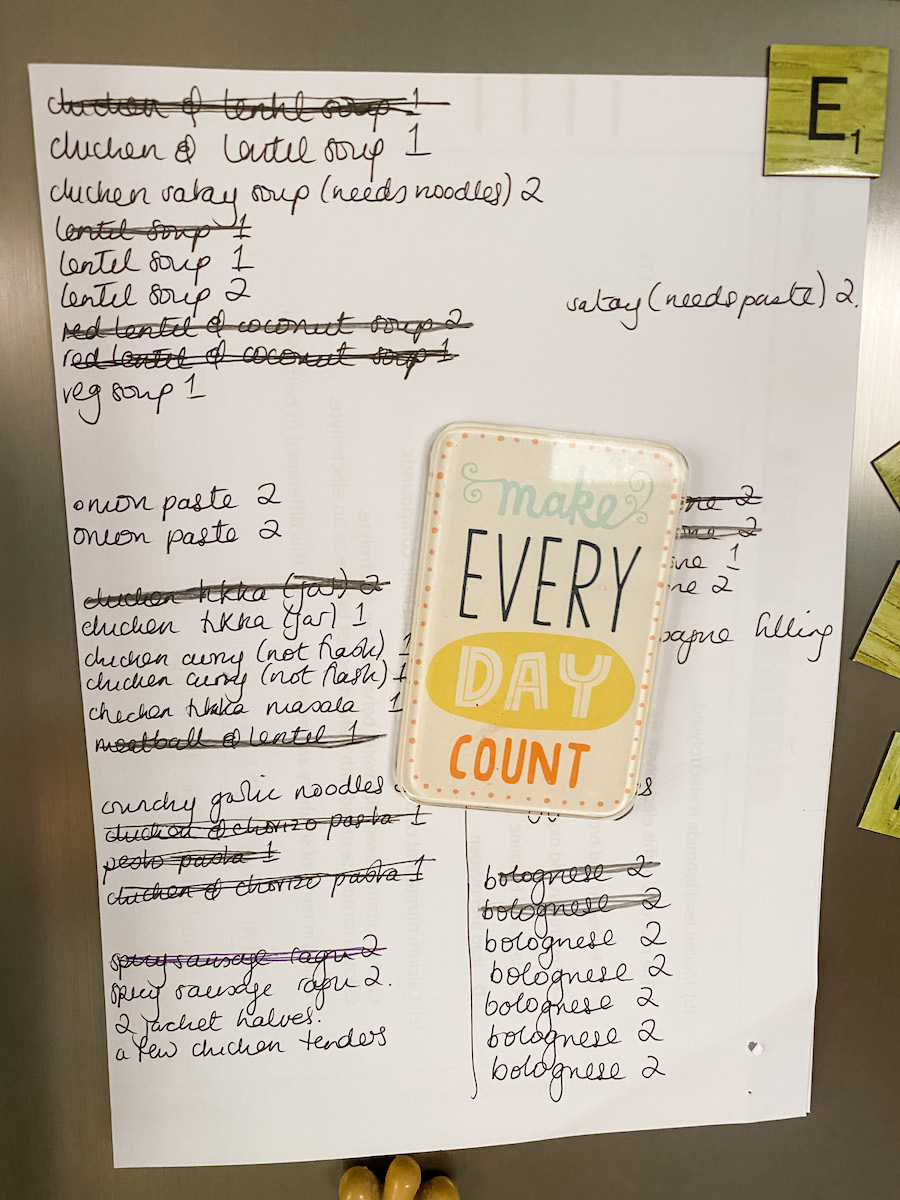
Make do with what you have
Since my local Express supermarket closed down, I've become much more accomplished at making do with what I already have at home rather than popping out for the couple of ingredients that I 'need'. To be fair, this is mostly fuelled by laziness as the nearest alternative shop is a parking hassle and a queue nightmare but it has forced me to be more open minded to ingredient substitutes or making the best of what I have. It saves on time and money and probably makes me more resourceful in the kitchen.
Think about when and where you'll shop
Shopping less often definitely helps in the quest to spend less, not least because it forces you to use what you have (see above). Also, we know that some supermarkets are hugely more expensive than others, but in our busy lives it becomes about convenience (and a pleasant shopping experience) and that's where the costs start to build up. If it's possible, try mixing up where you shop to see if you can make savings. Not everything will work out - I will NEVER AGAIN buy fish fingers or kitchen roll from my local value store (ugh) but their Greek yoghurt and their washing powder are excellent and great value.
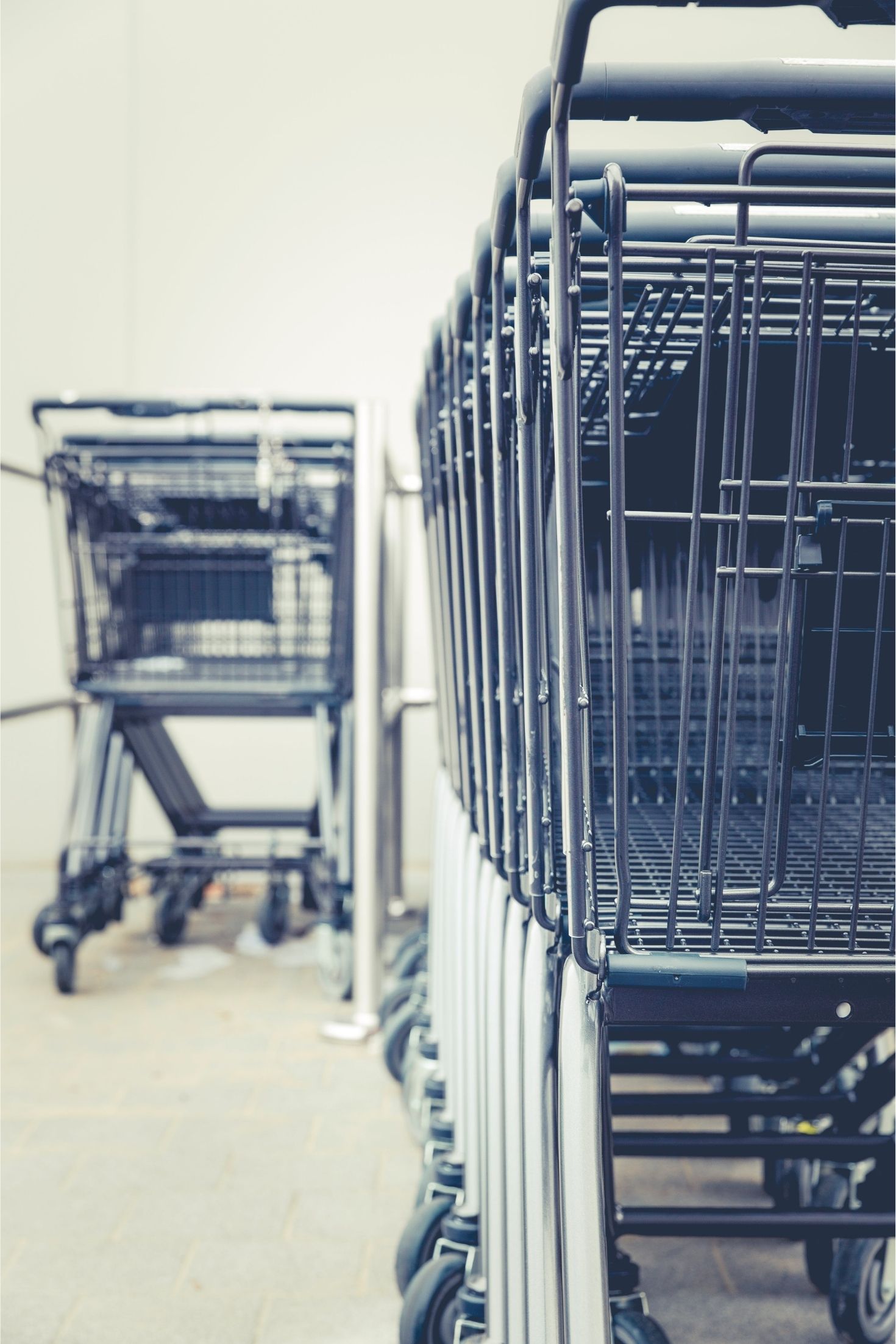
Buy in bulk
Buy in bulk when it makes sense and when you are certain that you will use what you've bought. I particularly do this for special offers on meat and fish which I can divide into portions and freeze. Bulk buying also helps meal prepping for upcoming meals, so that you can freeze them for future enjoyment.
Look up and down
Supermarkets often position their less profitable items high and low on the shelves and the ones they really want you to buy at eye-level, so make sure you always look up and down. My local supermarket definitely does this with raspberries - organic is always at eye-level and the (much cheaper) non-organic varieties are right at the top.

Choose own-label over big brands
This can save you a fortune and often the own-label performs just as well. Consider also shifting down a range in supermarket own-label products, say from 'premium' to value ranges. It's worth a try to see how much you can save and which products you don't mind.
Rethink 'convenience'
A lot of the time, we pay a premium for convenience - think pre-prepared vegetables or sauces that are made and ready to use. However, sometimes these conveniences pay off and it means we are cooking at home rather than, say, paying for a takeaway. It's also useful to think about the conveniences that make the biggest difference in your kitchen. I really value not having to cook grains (rice, lentils etc) when I'm cooking dinner so I choose to have a few packets of ready-cooked lentils in the cupboard and also cook my brown rice in bulk for freezing so that I can conveniently grab a pack from the freezer.
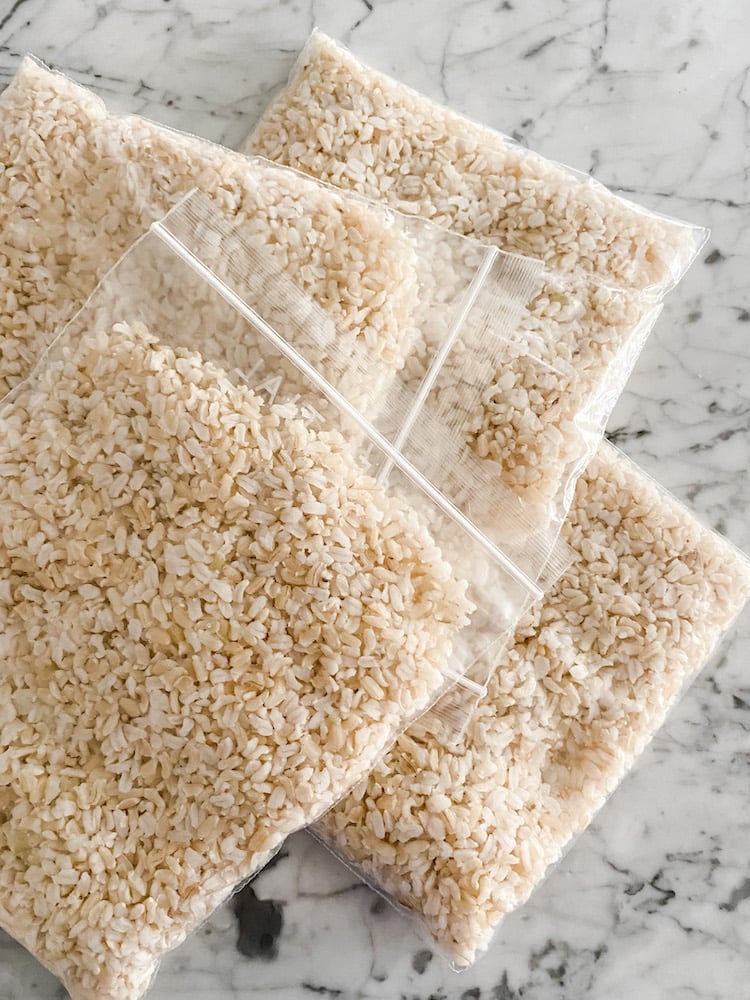
Make the most of the freezer
Making the most of the freezer is a hugely impactful route to spending less on food shopping.. If things are getting close to their use-by date, consider freezing them so that they can be kept for when you need them - think of it as a PAUSE button, rather than a long-term storage solution. The freezer also comes into its own for meal-prepping in advance and buying in bulk. Be sure to label everything that goes into the freezer and aim to use what you put in there (rather than it becoming your Black Hole).
Have regular 'from the freezer' meals
Once you've made the most of the freezer, it's important to also have regular 'from the freezer' meals to make sure that you do use what you have painstakingly prepared. If you can't see the back wall of your freezer, then it's probably that time …
Embrace leftovers
I LOVE a fridge full of leftovers and adore a meal comprised of a curated range of leftover bits and bobs. When you're doing your meal plan for the week, you may well be able to earmark one night for a leftovers dinner and failing that, your precious leftovers can feed beautifully into packed lunches and in particular, food flasks. This is all about avoiding waste, which in turn means you save money on food shopping with the added bonus of gifting your future self less to prepare.
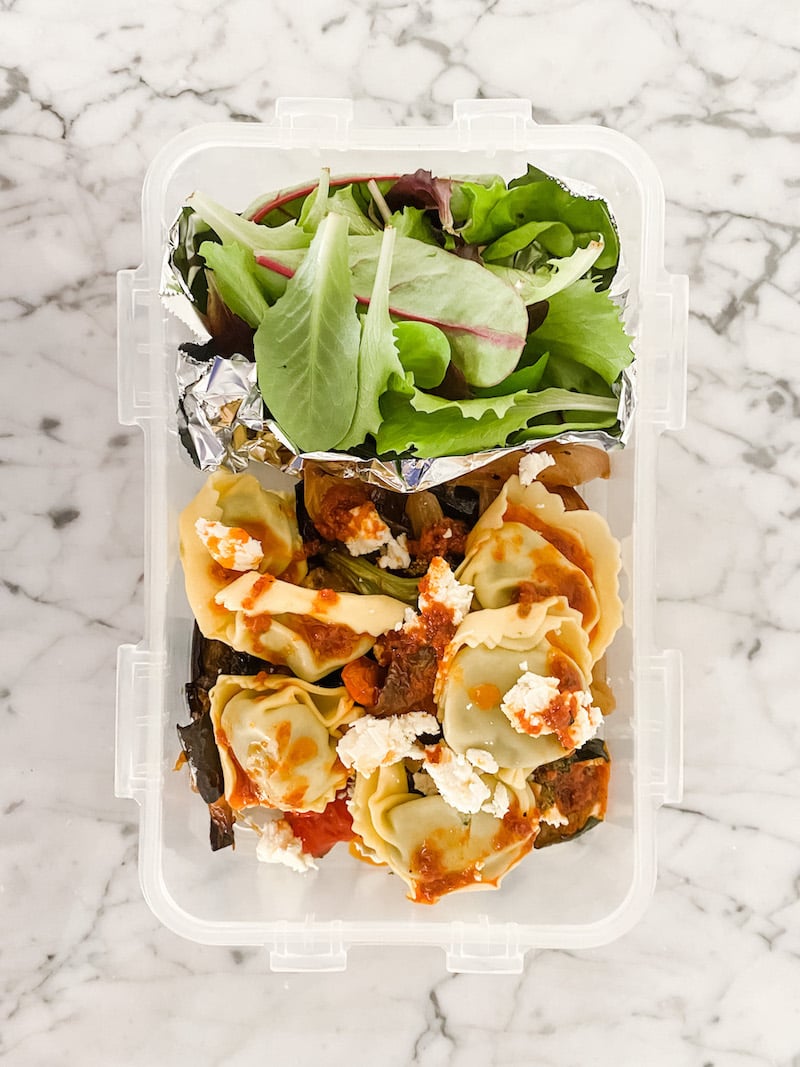
Be clear on the difference between Use-By and Best-Before dates
Use-by dates indicate when a product may no longer be safe to eat. You should not eat, cook, or freeze it after the date displayed, even if it looks or smells fine. Use-by dates are typically present on meats and dairy products, as well as ready meals like salads. Best-before dates are an indication of quality rather than safety. You can still eat food after its best-before date, but its flavour and texture are most likely not as good as before the date. Keep an eye on your dates to avoid waste but remember that, for best-before dates, give it a sniff - if it smells OK, it's probably OK to eat.
Is fresh always best?
Choosing frozen or tinned vegetables over fresh may save you money and, as their shelf life is long, you are less likely to waste them. I'm also a fan of fish from the freezer cabinet, especially when it's already portioned and I'm using it as part of a recipe.
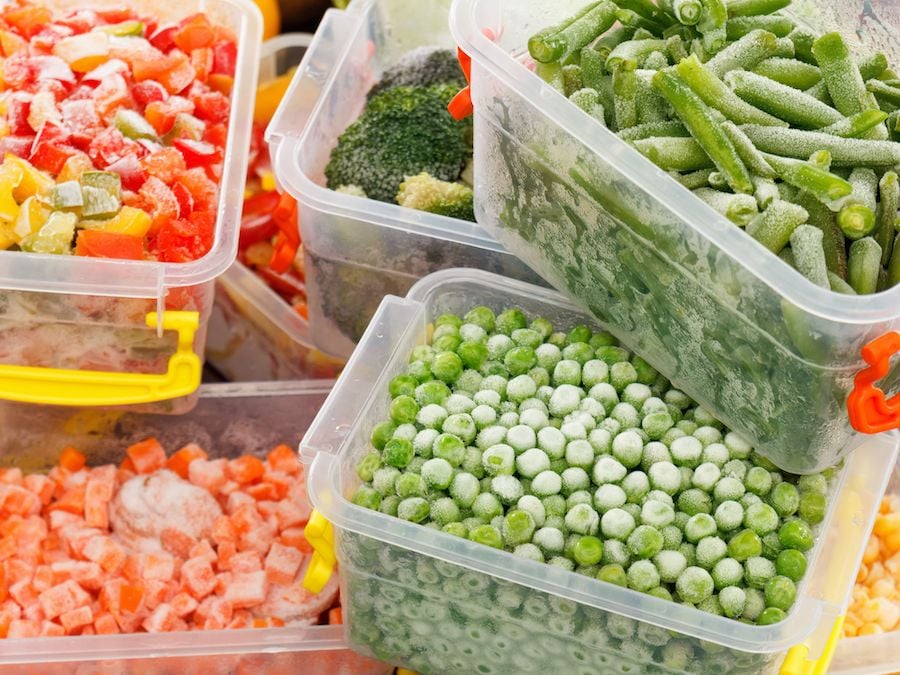
Make your coffee at home
Choosing to make my coffee at home rather than buying takeout, is a huge saving. I also remind myself that I can make it exactly, how I like it when I make it myself. And I'm sure I read somewhere that the average markup on a Starbucks is 80%. I'd rather that money stay in my pocket, thank you very much.
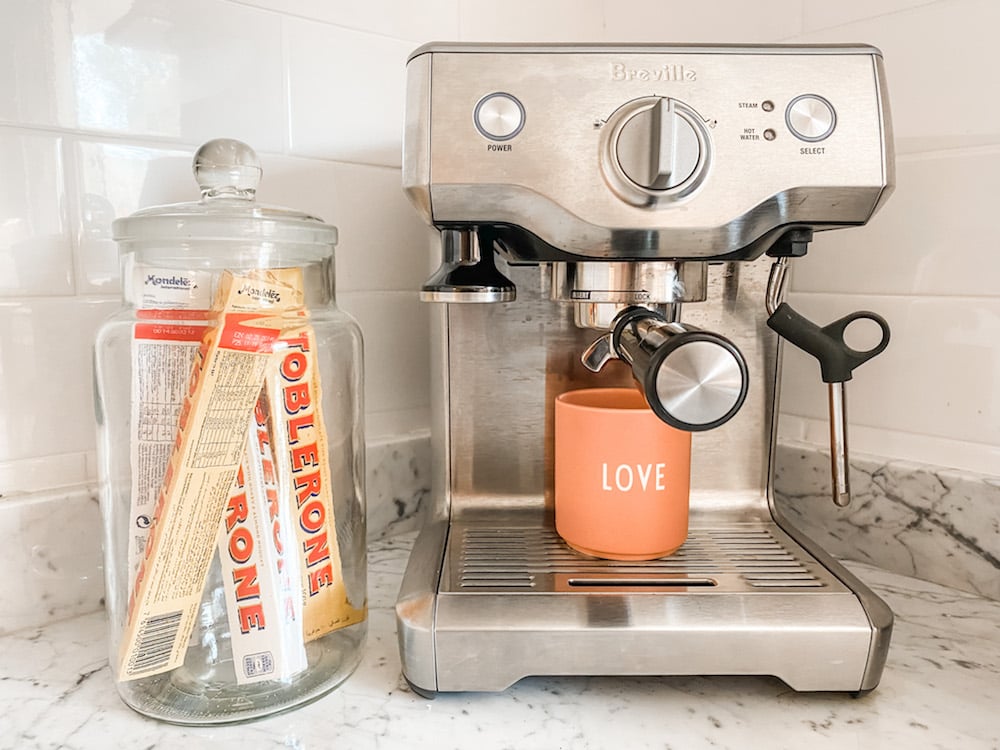
Skip the alcohol during the week
Let's be honest, if you pass on having a sneaky glass or two during the week, you spend less, sleep better, probably eat better and appreciate a drink at the weekend so much more. I'm not preaching, remember, just sharing what's working for me. My evening tipple has become soda water in my favourite fancy glass, with plenty of ice and a squeeze of lime. It's become more about the ritual than the drink and it's working for me, plus it's as cheap as chips.
Have a few easy takeaway alternatives up your sleeve
Even if takeaways are only once a week, the cost really does add up and half the time, they are disappointing anyway. I've curated some ideas for easy ways to get the joy, with limited effort. Of course, there will be times when only a full-blown, proper, delivered-to-your-door takeaway will do, but for the rest of the time, there are some alternatives.
Do you have any other suggestions to save money on food shopping? We certainly need all the help we can get.


